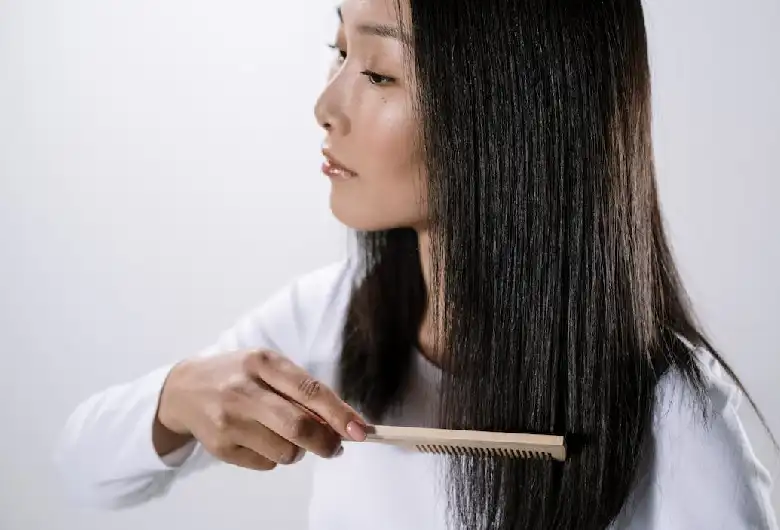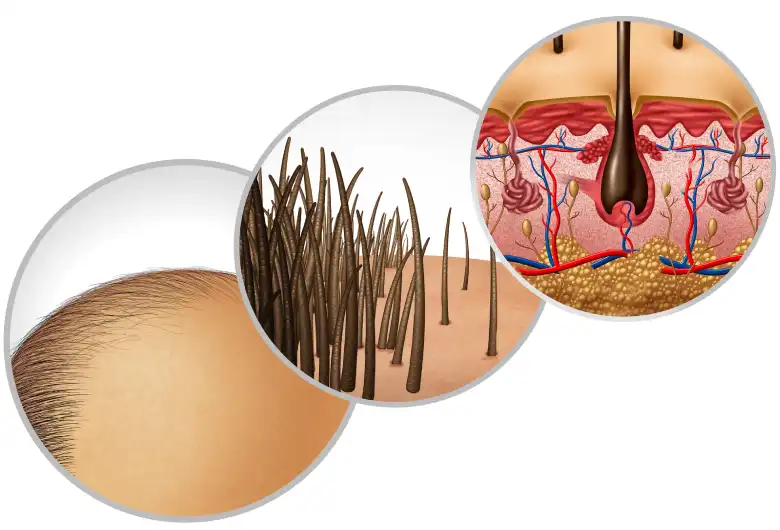Medical conditions, hormonal changes, aging, or a stressful lifestyle may cause hair loss. Regardless of the cause, however, hair loss can affect a person’s self-image and self-esteem. Millions of people worldwide are affected by temporary or permanent hair loss. Fortunately, there are many ways to deal with this condition. There are permanent hair loss treatments, such as scalp micropigmentation and hair transplant surgery.
But there are other coping mechanisms so you can confidently start a new chapter in your life, even without a full head of natural hair. Read on to discover the ways to cope with life after permanent hair loss:
1. Accept feelings of distress
The first step in embracing the new you is the emotional roller coaster. Hair is a person’s crowning glory, so it’s normal to feel sad, angry, or scared when you suffer hair loss. Your body changes, and you’re losing part of what defines you.
Accepting your feelings of distress is an essential part of coping with the condition. It can help you come to terms with the new you quickly. Don’t fight off any emotions. Instead, get support from family and friends, especially when the internal turmoil becomes overwhelming.

Hair loss affects not just your physical appearance but your psyche. If your hair was one of your standout features, then there’s a likelihood that you’ll feel less confident about yourself.
Talking to someone you trust is one of the best ways to deal with feeling inadequate due to hair loss. It could be a friend, a family member, or a therapist. Tell them how you’ve been affected.
Be open to them about any help you need during this time. They may be able to help in different ways, such as by reassuring you that self-worth transcends physical appearance. They may also be able to guide you toward regaining your confidence.
3. Join a support group
A support group can also help you in coping with hair loss. Usually, this group includes people who have battled or are experiencing hair loss and the effects that come with it. This is one of the best methods, as it ensures you get support and advice from people with the same condition.
Feelings of loneliness at this time are normal, but remember that you are not the only one with this condition. You can make new friends from a support group who empathize with you. You can help each other embrace life after hair loss. This can help boost your self-esteem and keep your social life positive.
4. Redefine yourself
Over time, your hair may have become a defining part of your identity. It may have been associated with your appearance, personality, or career. So, losing your hair can be a challenging experience, as it can feel like you are losing a part of yourself.
One way to cope is to redefine your sense of beauty and character. This means focusing on the qualities that make you unique and valuable, regardless of your hair. For example, you could focus on kindness, compassion, and understanding. You could also focus on your intelligence, sense of humor, or creativity.
If you present yourself as different from what they’re used to seeing, people will change how they see you. The sooner you do it, the sooner they’ll get used to the new you.

The scalp is a susceptible part. Hair acts as a protective cover for the scalp against sunburn and other harmful elements. However, with hair loss, the scalp becomes more exposed, which can cause dryness or flakiness. Ensure you clean your scalp regularly with clean water. However, avoid using soaps with sulfate and alcohol.
Additionally, apply sunscreen outdoors to prevent inflammation due to harmful UV rays. You can also use protective covers, such as hats and headwraps. Combining sunscreens and protective covers ensures your skin is moisturized and safe from the elements.
Finally, eating healthy meals and staying hydrated reduces the risk of dryness and itchiness on your scalp. Eating healthy also helps detoxify your body, removing harmful elements that could damage your skin.
6. Keep your confidence high
As previously noted, one of the primary aspects significantly impacted by permanent hair loss is your confidence. The loss of hair has the potential to alter both your self-perception and how others perceive you. Nevertheless, regardless of the severity of the condition, it is crucial to actively work towards maintaining high levels of confidence.
To begin with, projecting confidence through body language is key. Standing tall, smiling, and maintaining eye contact are effective ways to convey confidence. This not only influences how others perceive you but also positively impacts your own self-perception.
Additionally, incorporating daily reminders and positive affirmations of your strengths can be instrumental in reinforcing your self-worth and esteem. This proactive approach helps in sustaining a resilient sense of confidence amid the challenges posed by hair loss.
7. Find inspiration
Many people, including celebrities, have shared their hair loss stories publicly. For example, Hollywood star Jada Pinkett Smith and Olympic gold medalist Joanna Rowsell have all spoken publicly about suffering from alopecia and how this didn’t stop them from achieving their dreams. There are also many other documentaries, books, and blogs talking about people with alopecia, including their struggles and how they overcame them.
These stories can provide solace and motivation for you to embrace the new you. Like all the others, hair loss isn’t an end to your life but a chance for you to experience it differently.
8. Seek treatment options
Many viable options can be used to treat permanent hair loss. These options include the following:
-
- Scalp micropigmentation: This is a method where unique pigments are injected into the scalp to create an appearance of permanent tiny hairs.
- Hair transplant surgery: Healthy hair follicles are moved from areas with dense growth and planted in the balding areas.
- Laser therapy: This non-invasive therapy treatment uses a low-level laser to promote hair growth by stimulating the scalp. While the results can vary, regrowth is possible.
These treatment options can help you regain a full head of hair, but results may vary. That’s why it’s essential to consult a hair loss specialist for diagnosis. This will help you understand the implications of any treatment option you choose.
Conclusion
Dealing with permanent hair loss can be a difficult situation to deal with. Not only does it change your physical appearance, but it can also affect your mental health, esteem, and confidence. Fortunately, you can successfully combat the effects of hair loss. Seek support, maintain a good hair care regimen, and seek viable treatment. By managing hair loss properly, you can embrace the new you even after experiencing permanent hair loss.
